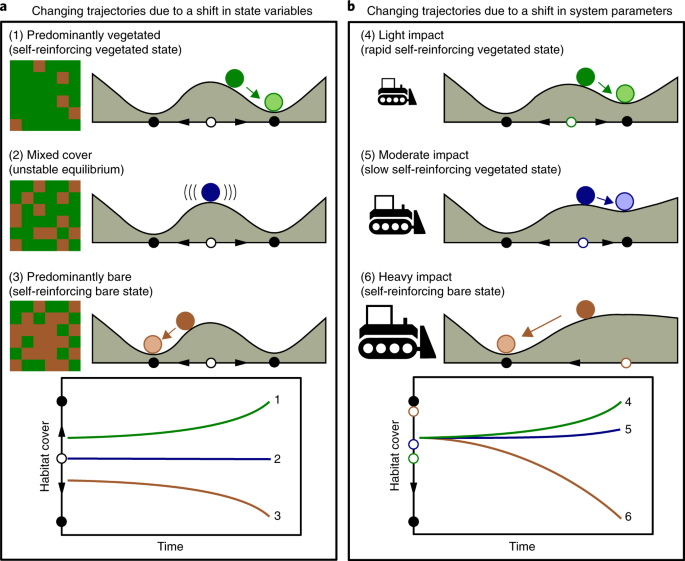In today’s uncertain economic climate, it’s essential to find ways to save money and protect your finances during times of inflation. With rising prices and increased costs of living, it can be challenging to make our hard-earned money go further. However, there are solutions available to help you navigate through these difficult times. This article will provide you with ten practical and effective strategies to save money during inflation, empowering you to make smarter financial decisions and secure your future. So, whether you’re looking to cut expenses or make smarter investments, read on to discover valuable tips that will help you weather the storm of inflation and keep more money in your pocket.
Create a Budget
Track your income and expenses
Managing your finances starts with having a clear understanding of your income and expenses. Keep track of all the money coming in, including your salary, freelance earnings, and any other sources of income. At the same time, make a note of all your expenses, from rent and utilities to grocery bills and transportation costs. This will give you a comprehensive overview of your financial situation.
Identify areas where you can cut back
Once you have a clear picture of your income and expenses, identify areas where you can make cuts. Look closely at your spending habits and determine what expenses are necessary and what can be reduced or eliminated. For example, you could cut back on dining out and entertainment costs by cooking meals at home and finding affordable or free activities. By being mindful of your spending, you’ll be able to save more money.
Allocate funds for savings
Finally, make sure to allocate a portion of your income for savings. This is crucial for building a financial safety net and reaching your long-term goals. Set a specific amount or percentage of your income that you can comfortably save each month and make it a priority. It may require some adjustments to your spending habits, but saving money for the future is always worth it.
Cut Down on Discretionary Spending
Evaluate your wants versus needs
When trying to save money during inflation, it’s important to evaluate your wants versus needs. Take a closer look at your spending habits and determine if you are prioritizing your needs over your wants. Focus on essential expenses such as housing, food, and healthcare, while being mindful of unnecessary purchases. By distinguishing between wants and needs, you can prioritize your spending and save money in the process.
Reduce dining out and entertainment costs
One area where many people tend to overspend is dining out and entertainment. While it’s understandable to want to enjoy meals at restaurants and attend events, these expenses can quickly add up. Consider cutting down on dining out by preparing more meals at home and opting for cheaper entertainment options, such as movie nights at home or free community events. Not only will this help you save money, but it can also encourage creativity and quality time with loved ones.
Consider alternatives to expensive hobbies or activities
Expensive hobbies or activities can put a strain on your budget, especially during inflation when prices are rising. Instead of sacrificing your interests altogether, consider finding alternative ways to indulge in your hobbies. For example, if you enjoy fitness, explore free exercise classes or outdoor activities instead of expensive gym memberships. If you’re passionate about art, try attending community workshops or joining local art groups. By seeking out more affordable alternatives, you can continue pursuing your interests without breaking the bank.

Shop Smart
Compare prices before making purchases
When shopping, it’s always a good idea to compare prices before making a purchase. Thanks to the internet, it’s easier than ever to find the best deals and discounts. Take some time to research different retailers and compare prices for the items you need. Look for sales or promotions that can help you save money. By being a smart shopper, you can ensure that you’re getting the best value for your money.
Use coupons and take advantage of sales
Another way to save money when shopping is by using coupons and taking advantage of sales. Many retailers offer coupons that you can use to reduce the cost of your purchases. Look for coupons in newspapers, magazines, or online coupon websites. Additionally, keep an eye out for sales and special promotions, especially during major shopping seasons. By combining coupons and sales, you can maximize your savings.
Consider buying in bulk or wholesale
Buying in bulk or wholesale is a great way to save money, especially on essential items that you use frequently. By purchasing larger quantities, you can often get a lower price per unit. Consider shopping at wholesale warehouses or utilizing bulk purchase options at your local grocery store. Just make sure to only buy in bulk for items you use regularly to avoid wastage and ensure maximum savings.
Reduce Energy Consumption
Turn off lights and unplug appliances when not in use
Reducing your energy consumption is not only good for the environment but also for your wallet. Make it a habit to turn off lights, fans, and other appliances when not in use. This simple action can significantly reduce your electricity bill over time. Additionally, remember to unplug appliances that are not in use, as they can still consume energy when plugged in.
Lower your thermostat and use natural lighting
Heating and cooling expenses can add up quickly, especially during extreme weather conditions. Lower your thermostat a few degrees in the winter and raise it a few degrees in the summer to save on energy costs. Additionally, take advantage of natural lighting during the day by opening curtains or blinds. Opting for natural light instead of turning on artificial lights can help reduce your energy consumption and lower your electricity bill.
Invest in energy-efficient appliances
Investing in energy-efficient appliances is a long-term strategy to save money on your energy bills. Look for appliances with an Energy Star label, as they are designed to consume less energy without sacrificing performance. While energy-efficient appliances may have a higher upfront cost, the savings they generate in the long run can outweigh the initial investment. Consider upgrading your appliances gradually, starting with the ones that consume the most energy.

Minimize Debt
Pay off high-interest debts first
If you have debts, especially high-interest debts like credit card balances or personal loans, it’s essential to prioritize paying them off. High-interest debts can quickly accumulate and become overwhelming, making it difficult to save money. Make a list of all your debts and focus on paying off the ones with the highest interest rates first. By reducing or eliminating your debts, you can free up more money for savings and avoid paying unnecessary interest charges.
Consider consolidating loans or credit card balances
Consolidating your loans or credit card balances can be a helpful strategy to manage your debts more effectively. By combining multiple debts into a single loan or credit card, you may be able to secure a lower interest rate or reduce your monthly payments. This can make your debts more manageable and allow you to save money in the long run. However, before consolidating, carefully consider the terms and potential fees associated with the consolidation.
Avoid unnecessary borrowing
During inflation, it’s crucial to avoid unnecessary borrowing whenever possible. Taking on more debt can put a strain on your finances and make it harder to save money. Before making any new purchases or commitments, ask yourself if it’s a true necessity or if it can be postponed. By avoiding unnecessary borrowing, you can protect your financial stability and focus on saving for your future.
Save on Transportation
Use public transportation or carpool
Transportation expenses can be a significant drain on your budget. To save money, consider using public transportation or carpooling whenever possible. Public transportation can be significantly cheaper than owning and maintaining a car, especially in urban areas. If public transportation is not an option, explore carpooling with coworkers, neighbors, or friends who have a similar commute. Sharing the cost of fuel and parking can help you save money on transportation expenses.
Consider biking or walking for short distances
Another way to save money on transportation is by opting for biking or walking for short distances. Instead of automatically reaching for your car keys, consider if the trip can be made by foot or on a bike. This not only saves money on fuel but also promotes a healthier and more active lifestyle. For longer distances, you can also look into electric scooters or shared bikes, which often provide a cost-effective alternative to driving.
Maintain your vehicle for optimal fuel efficiency
If you own a car, proper maintenance is key to achieving optimal fuel efficiency and saving money. Regularly check and replace air filters, ensure tires are properly inflated, and keep up with recommended maintenance schedules. By taking care of your vehicle, you can improve its fuel efficiency and reduce the amount of money spent on gas. Additionally, consider using fuel-saving techniques such as driving at a steady speed and avoiding unnecessary idling.
Review Insurance Policies
Shop around for better insurance rates
Insurance is an essential aspect of financial planning, but it’s important to ensure that you’re getting the best value for your money. Take the time to shop around for better insurance rates, whether it’s for auto, home, or health insurance. Reach out to multiple insurance providers and compare their coverage options and prices. You may be surprised to find that you can get the same coverage at a lower price by switching insurance companies.
Review your coverage and consider adjusting it if necessary
As your financial situation changes, it’s important to review your insurance coverage periodically. Evaluate your current coverage and consider if it still aligns with your needs and circumstances. For example, if you’ve paid off your mortgage, you may not need the same level of homeowners’ insurance. By adjusting your coverage to reflect your current situation, you can avoid paying for unnecessary coverage and potentially save money on your insurance premiums.
Bundle multiple insurances for potential discounts
Many insurance companies offer discounts for bundling multiple insurance policies. Consider consolidating your auto, home, and other insurance policies with the same provider to take advantage of potential discounts. Bundling offers convenience in managing your policies and can result in significant savings over time. However, before bundling, make sure to compare the bundled price with individual policies from different providers to ensure you’re still getting the best deal.
DIY and Repurpose
Do-it-yourself projects for home repairs or renovations
Instead of immediately reaching for professional help, consider tackling certain home repairs or renovations yourself. With the abundance of online tutorials and resources, many projects can be done with a little research and practice. Whether it’s painting a room, fixing a leaky faucet, or remodeling a space, taking a DIY approach can save you money on labor costs. Just make sure to evaluate your skills and capabilities before taking on more complex projects.
Repurpose or upcycle items instead of buying new
When looking to add new items to your home or wardrobe, consider repurposing or upcycling instead of buying new. Many items can be given a new lease of life with a little creativity and imagination. From repainting furniture to revamping clothing, upcycling allows you to personalize your belongings while saving money. Additionally, consider shopping at thrift stores or online marketplaces for second-hand items that can be repurposed, as they often come at a fraction of the price of new.
Learn basic maintenance and repair skills
By learning basic maintenance and repair skills, you can save money on hiring professionals for small tasks. Invest time in building your foundational knowledge on tasks such as changing a lightbulb, fixing a leak, or unclogging a drain. These skills can be valuable in maintaining your home and avoiding unnecessary expenses. Many online resources and local community centers offer workshops and tutorials on basic maintenance and repair skills.
Opt for Generic Brands
Choose generic products over branded ones
When grocery shopping or buying household items, consider opting for generic or store-brand products instead of their branded counterparts. Generic products often provide the same quality and functionality as branded products at a lower price. Compare ingredients, nutritional information, or performance reviews to ensure that the generic product meets your expectations. Choosing generic brands can lead to significant savings over time without compromising on quality.
Compare ingredients and quality to ensure satisfaction
While choosing generic brands can be a great money-saving strategy, it’s important to compare ingredients and quality to ensure satisfaction. Some generic products may differ in formulation or taste compared to their branded counterparts. Take the time to read labels and compare nutritional information or ingredient lists. By finding the right balance of quality and price, you can save money without sacrificing your preferences.
Buy in bulk to save even more
Buying in bulk is not only applicable to certain household items, but it can also be extended to groceries and personal care products. Consider purchasing non-perishable items or items with a longer shelf life, such as rice, pasta, cleaning supplies, or toiletries, in larger quantities. Buying in bulk typically results in a lower price per unit, offering you more savings in the long run. Just make sure to avoid hoarding or buying perishable items in excess to prevent wastage.
Invest Wisely
Consider long-term investments with potential for growth
When thinking about saving money, it’s important to consider long-term investments with the potential for growth. Saving in traditional savings accounts or low-interest investments may not be enough to counteract the effects of inflation. Research investment options such as stocks, bonds, mutual funds, or real estate that have a history of providing solid returns over time. Diversifying your investments can help spread the risk and increase your chances of achieving long-term financial growth.
Diversify your investment portfolio
Diversification is a key principle of successful investing. By diversifying your investment portfolio, you spread your risk across different asset classes and investments. This can help protect you against potential downturns in specific industries or markets. Consider investing in a variety of assets such as stocks, bonds, mutual funds, real estate, or even alternative investments like cryptocurrencies. Diversification can provide stability and potentially increase your overall investment returns.
Seek advice from a financial advisor
Investing wisely can be complex, especially if you’re not familiar with financial markets and investment strategies. In such cases, it’s advisable to seek advice from a trusted financial advisor. They can help you create a personalized investment plan based on your goals, risk tolerance, and financial situation. A financial advisor can provide valuable insights and guide you towards investment opportunities that align with your long-term financial objectives.
In conclusion, saving money during inflation requires a proactive approach and disciplined financial habits. By creating a budget, cutting down on discretionary spending, shopping smart, reducing energy consumption, minimizing debt, saving on transportation, reviewing insurance policies, embracing DIY and repurposing, opting for generic brands, and investing wisely, you can navigate the challenges of inflation and secure your financial future. Remember, every small step towards saving counts, and with determination and consistency, you can achieve your financial goals.





